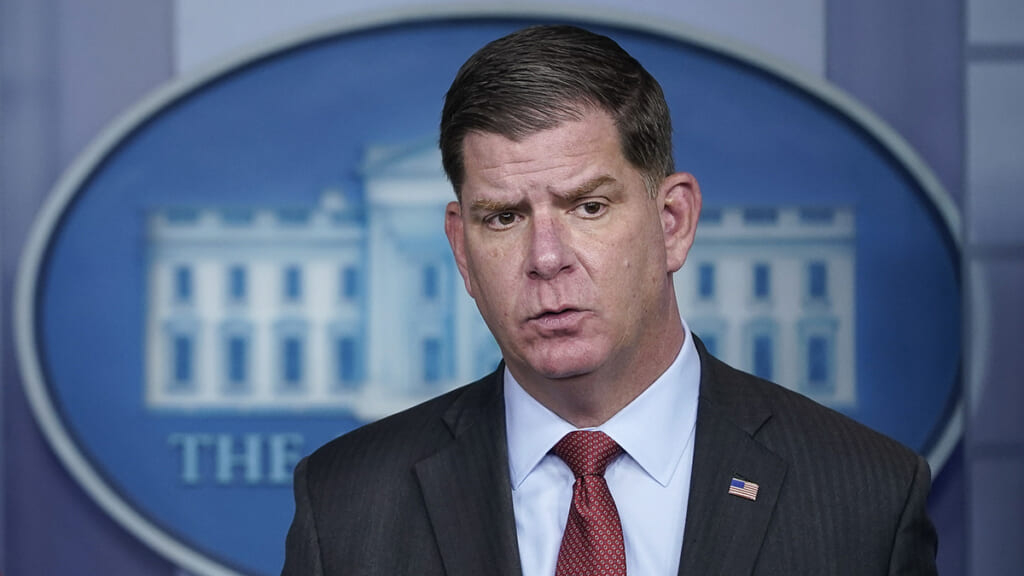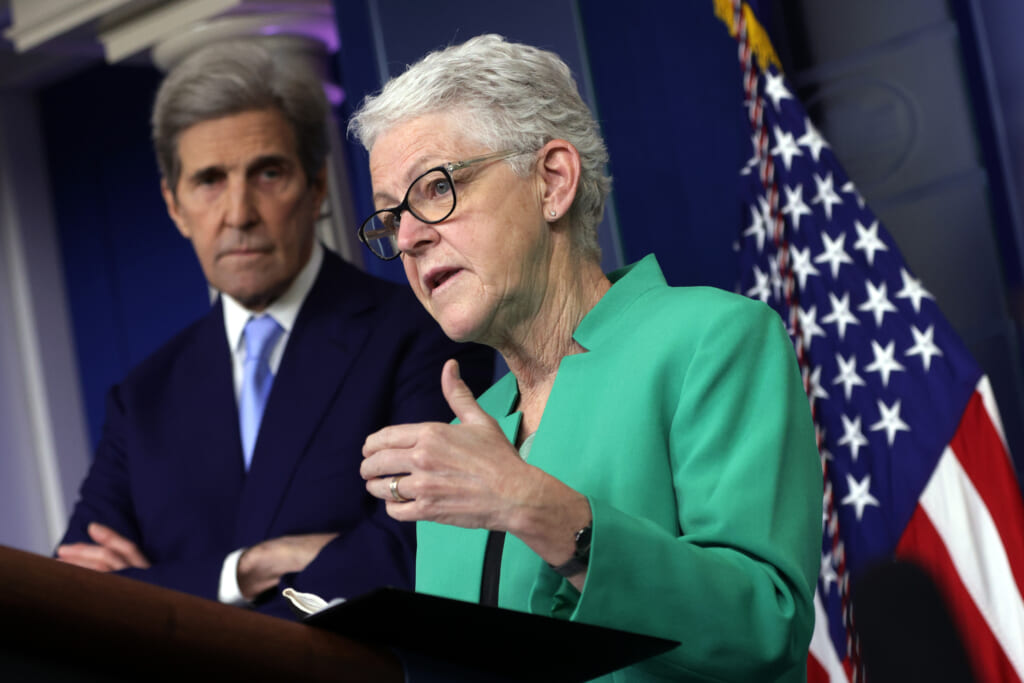Biden administration touts jobs plan to stimulate economy of Black America
Black unemployment numbers are still historically higher than white America despite the administration’s pledge to bring justice and equity to the marketplace.
President Joe Biden said the country is “still digging” its way out of a “very deep hole” as the nation unpacks surprising unemployment numbers from April.

The snapshot from last month tells a story of a country with rapid job growth, but increasing unemployment. When looking deeper into the data, the nation overall has a 6.1% unemployment, but within that population, Black unemployment is at 9.7%.
Read More: Biden to announce funding for affordable housing, broadband in jobs plan
The disappointing blow comes as the Biden administration touted promising jobs figures of upwards of 266,000 added to the economy in March. In anticipation from the previous jobs report, many analysts predicted that a million people would have joined the workforce last month versus the almost 300,000 that were employed in the month of April.
While the numbers showed room for improvement, Labor Secretary Marty Walsh said the “leisure and hospitality and restaurant” industries saw the “most significant growth.” He attributes this to consumers and workers returning to the brick-and-mortar retail space.

Since some areas saw growth and others remained stagnant, President Biden hung the economic shortcoming on inequality as the root cause. On Friday he said, “this report underscores those who built this country have been left out in the cold.”
When it comes to those left out in the job market, Labor Secretary Walsh noted that “three million women have been pushed out of the workforce.”
Like women, disproportionate jobs numbers shine a light on the need to stimulate the economy of Black America. Black unemployment numbers are still historically higher than white America despite the administration’s pledge to bring justice and equity to the marketplace.
To cut into the numbers in the short and long term, the Biden administration believes the president’s infrastructure and jobs plan provide essential solutions. Gina McCarthy, National Climate Advisor for President Biden, acknowledged that beyond community investments in infrastructure, funding will be allocated to HBCUs through the infrastructure plan to create research grants and opportunities for Black students.

Read More: Where are the jobs? Thousands remain vacant in Biden administration thanks to Trump
“We are actually proposing billions of dollars in investments in those colleges so they can do part of the research and development work that is going to bring innovation to the table and that is going to spark the next group of young people from the communities that have been left behind to be leaders of today and tomorrow,” McCarthy told theGrio.
Secretary Walsh digs in a bit further on the matter adding that he thinks the administration has to be “intentional” as it empowers communities of color.
According to Walsh, it’s “not just getting somebody who’s African American a job, but allowing somebody who is a person of color to get a good-paying job so they can become part of the middle class.”
Over the years, the unemployment rates for Black Americans have never been on par with white America. Walsh admits his department is undergoing internal reviews to lead by example.
“We’re having major conversations within the Department of Labor about diversity and inclusion and about hiring and how we do things and how we change the way that we do things,” Walsh added. “Major employers and small employers around the country, we need to have these real honest conversations as we move forward.”
Have you subscribed to theGrio’s “Dear Culture” podcast? Download our newest episodes now!
TheGrio is now on Apple TV, Amazon Fire and Roku. Download theGrio.com today!
More About:Politics

